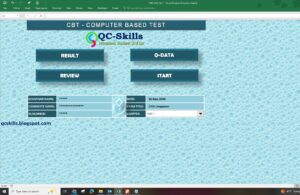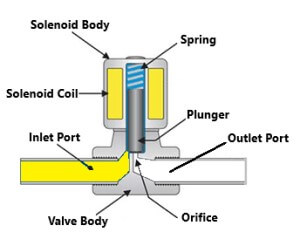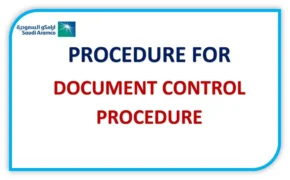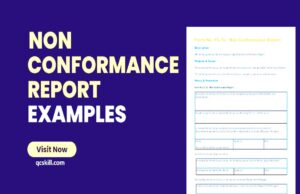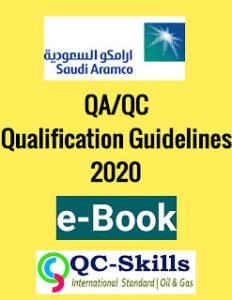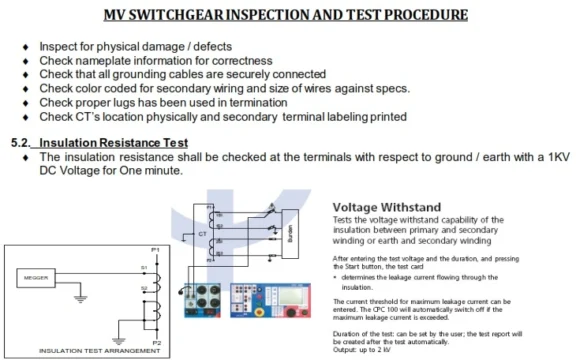فحص الأجهزة ومراقبة الجودة CBT 2021 السائل – الجزء -04
Instrumentation Inspection and Quality Control CBT 2021
Questioner – Part-04
Q. What is maximum vacuum?
The maxmm. Vacuum = 760 mm Hg.
Q. What is Vacuum?
Any pressure blow atmospheric pressure is Vacuum.
Q. What are the primary elements for measuring pressure?
The primary elements for measuring pressure are:
1. Bourdon Tube
2. Diaphragm
3. Capsule
4. Bellows
5. Pressure Spring
The above are known as elastic deformation pressure elements.
1. Types of Bourdon Tubes.
1) ‘C’ Type.
2) Spiral
3) Helix
2. Diaphragm : The diaphragm is best suited for low pressure measurement
3. Capsules : Two circular diaphragm are welded together to form a pressure
capsule.
Material used: PHOSPHER BRONZE, NI‐SPONGE, STAINLESS STEEL
4. Bellows : Bellows is a one‐piece, collapsible, seamless metallic unit with
deep folds formed from very thin walled tubing.
5. Pressure Spring : Pressure springs of helical or spiral shape are used for measuring
high pressures.
Q. How will you change the action of a control valve?
If the control valve is without bottom flange the actuator needs to be charged. If the bottom
flange is provided, disconnect stem, separate body from bonnet. Remove the bottom flange
and the plug from body. Detach the plug from the stem by removing the pin, fix the stem at the
other end of the plug and fix the pin back. Turn the body upside down. Connect it back to the
bonnet after inserting the plug and stem. Connect back the stem and couple it. Fix back the
bottom flange. Calibrate the Valve.
Q. What is feedback & feedforward control?
Feedback control involves the detection of the controlled variable & counter acting of changes
in its value relative to setpoint by adjustment of the manipulated variable.
Feedforward is a system in which corrective action is based on measurement of disturbance
inputs into the process.
Q. Explain furnace draft control.
When both forced draft & induced are used together at same point in the system the pressure
will be the same as that of atmosphere. Therefore the furnace pressure must be negative to
prevent hot gas leakage. (0.1” H2O)
Q. How will you apply wttest calibration to a leveltrol?
Normal Leveltrol
1. Adjust the zero to get 0% output.
2. Connect a transparent PVC tube to the Drain point as shown in Hook‐up.
3. Fill it to the centre of top flange.
4. Adjust the Sp. Gravity or the Span adjusts.
5. Fill it up to 50% to check linearity.
Loss of wt. at 0% = wt. of the displacer
Loss of wt. at 100% = (wt. of the displacer – volume) x σ
i.e. Volume = πr2h σ = Sp. Gravity.
Q. What are the limitation of leveltrol?
72”.
Q. What will happen if the displacer has fallen?
If the displacer has fallen, the output will be maximum.
Has a hole in it, the output will be minimum.
Q. How will you check zero of a DP level transmitter?
Close both isolation valves on LP leg and HP leg, equalize, check and adjust zero if necessary.
Q. What is meant by term “EXPLOSIONPROOF”?
Equipment designed to withstand an internal explosion and to prevent the ignition of
GAS/VAPOR outside the enclosure.
Q. How many zones are there in classΙ atmospheres?
Three (3) zone 0, zone 1, zone 2.
Q. How many groups or gases/vapors are there in ClassΙ atmosphere?
Division : Four A, B, C, D
Zone : Three ΙΙC, ΙΙB, ΙΙA
Q. What type of conduit must be used within Class Ι zone 0/1 area?
Threaded Rigid Metal Conduit.
Q. How many threads must be engaged to make a joint EXPLOSIONPROOF?
5 Full Threads NEC 501‐4 (A) (1) requires threaded connection to be made up with at least 5
threads fully engaged.
Q. What is the distance from an EXPLOSIONPROOF enclosure must a seal be installed?
18” NEC 501‐5 (A) (1) conduit seals shall be installed within 18” of the enclosure.
Q. In a ClassΙ. Zone 0 areas A 2” conduit is terminated to an enclosure containing only terminals is a conduit seal is required.
Yes. NEC 501‐5 (A) (1) (B) entries 2” and larger into enclosures containing terminals, splices
or taps sealing fittings are required.
Q. Why are sealing fittings installed in conduit systems?
To minimize the passage of gases/vapors and to prevent the passage of flames into the conduit
systems can also be used to drain conduit.
Q. What is the maximum distance a sealing fitting is installed from boundary location?
10 FEET NEC 501‐5 (A) (4) and (B) (2) requires sealing within 10 Feet either side of the
boundary.
Q. What is the minimum thickness of the compound inside a sealing fitting?
The minimum thickness shall not be less than the trade size of the sealing fitting and in no case
less than 5’8 inch 501‐5 (C) (3).
Q. Explain what is meant by the term “FLASH POINT” of liquid.
The minimum temperature at which a liquid gives of a sufficient concentration to form an
ignitable mixture.
Q. A conduit outlet box can be used as a sealing fitting when fitted with sealing cover?
Yes. A GU Type fitting can be used as a sealing fitting when fitted with a sealing cover.
Q. What is the ratio of mix powder to water?
2 parts of powder to 1 part of water (WATER : must be sweet water)
Q. What is the purpose of FIBER DAM inside a sealing?
To make a foundation for the compound. The fiber dam must be strong enough and tight
enough to prevent the weight of the poured compound from seeping out from the conduit.
Q. What is the minimum information required on a classified area drawing.
1. Differentiation between the classified and non‐classified locations.
2. Minimum AIT (Auto Ignition Temperature) of the gas/vapor.
3. Differentiation between the groups.
4. Classified areas to be shown in plan and elevation.
Q. What is the maximum internal and external surface temperatures allowed in class I Zone 2 areas?
800° of the Auto Ignition Temperature of the gas/vapor in the area.
See NEC: 501‐5 (A) (1); 501‐5 (A) (4)……………………………………..
Q. Where a mixture of gases has a mixture density less than 75% of the density of air what is it classed as?
Lighter than air. See SAES –B‐068, Para 5.4
Q. The mixture of gases/vapors of different ignition temperatures. How is the ignition temperature of the gas/vapor defined?
By one of three methods
Lowest individual temperature of the mixture.
Test of the mixture
By calculation. (See SAES B‐068, Para 5.3)
Q. What is the classification of an unventilated room?
ClassΙ Div. 1 Group A / Class Ι Zone 1 Group ΙΙC
Q. Are sealing fittings required for smart transmitters in a ClassΙ Zone 2 area?
No. smart transmitters have a low wattage output and usually will not reach 80% of the auto
ignition temperature of the gas/vapor, also the cable is terminated within a terminal chamber
which is separate from the process by a minimum of two seals.
- ARAMCO :: CBT QA/QC – Instrumentation Inspector Qualification Guideline
- Instrumentation Inspection and Quality Control CBT 2021 Questioner – Part-01
- Instrumentation Inspection and Quality Control CBT 2021 Questioner – Part-02
- Instrumentation Inspection and Quality Control CBT 2021 Questioner – Part-03
- Instrumentation Inspection and Quality Control CBT 2021 Questioner – Part-04
- Top 50 Questioner Instrumentation Inspection and Quality Control CBT 2021 – Part-05
- Saudi Aramco Cbt Exam Questions and Answers
- QA/QC Inspector Question & Answer Handbooks-2021
- QA/QC E-books Category



